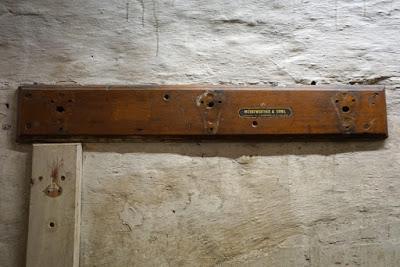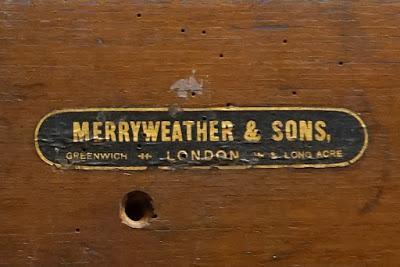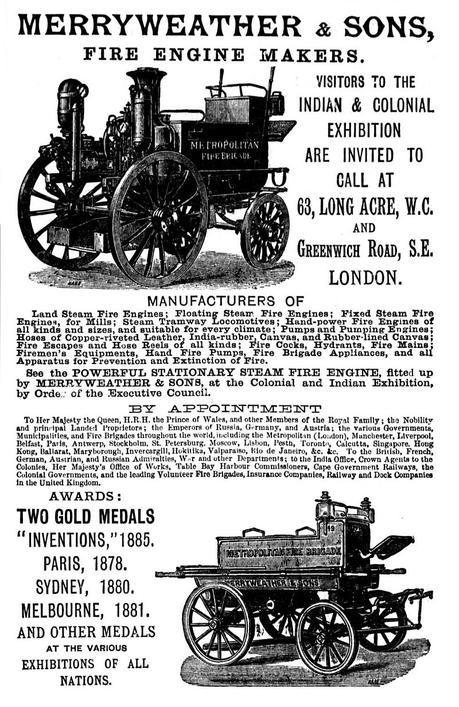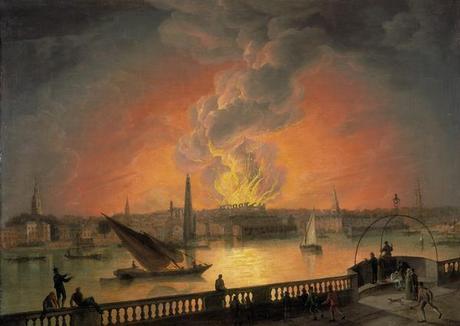
Sometimes it's not the obvious things that draw you in and lead to new stories. On a London Historians tour of the Theatre Royal Drury Lane, there were plenty of eye-catching features: statues, chandeliers, elaborately-decorated rooms, all designed to be noticed and deserving of attention. Yet a small label on a bit of wood down in the cellars also caught my eye, and proved worth a little research.

Merryweather & Sons were makers of fire appliances, and the business dated back to 1692 (a period in London's history when people must have been particularly aware of the need for fire precautions). Founded by Nathaniel Hadley, it became Merryweathers in the nineteenth century, when one Moses Merryweather - who had originally joined the company as an apprentice and later married the owner's niece - took over. They began in Long Acre, selling fire pumps and leather buckets, and stayed there until, ironically, the factory burned down in 1873. Another had been opened in Lambeth in 1862; both were replaced by a new one in Greenwich, opened in 1876. In 1892 it became a limited company, Merryweather Ltd - suggesting that the Theatre Royal label is a Victorian survival. Only in the late twentieth century did the company move out of London, and it is now based in Kent.

1886 advertisement
The company enjoyed great success, winning the international fire engine competition at Crystal Palace - and a government contract - with the Merryweather Sutherland, a horse-drawn, steam-powered fire engine in 1863. By the end of the nineteenth century, they had diversified into other kinds of water supply equipment as well as safety rafts, dredging apparatus, tram engines, and an early petrol cycle. However, firefighting equipment would remain their main business.

View of the Drury Lane fire from Westminster Bridge (artist unknown)
Fire was a huge concern for theatres: the Theatre Royal Drury Lane famously burned down in February 1809. Its owner Richard Brinsley Sheridan had rebuilt the fabulous theater just 15 years earlier - complete with the latest fire-prevention features, including water tanks and an iron safety curtain. Watching it go up in flames, drink in hand, Sheridan famously said, 'A man may surely be allowed to take a glass of wine by his own fireside.'

